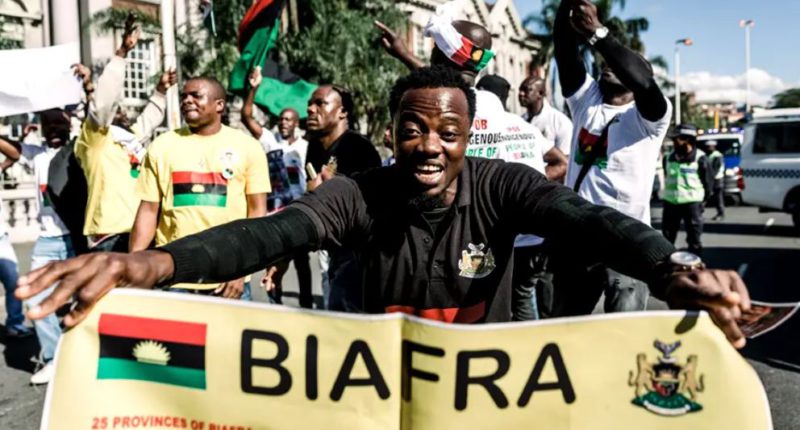The insecurity in Nigeria, Africa’s most populous nation, has over the last years grown in scale, reach and sophistication. According to dataphyte, in January 2022, 1482 Nigerians were victims of insecurity in the country, amongst whom 915 died and the remaining 571 abducted.
Current situation
Although no state in Nigeria is immune to the threatening violence in the country, insecurity in the southeastern region of the country is particularly worrying. This is because structures, agencies and personnels tasked with ensuring the safety of lives and properties are lacking.
Southeast economy
The economic significance of the southeast to Nigeria’s national development cannot be underestimated as markets in Onitsha, Aba and Nnewi have established themselves as commercial and manufacturing hubs with export links to other local and international markets.
- A report by the cable showed that the internally generated revenue (IGR) of the five southeastern states in 2020 was N96.7 billion.
- Amongst the different geopolitical zones in Nigeria, the southeastern region recorded the lowest debt in 2021 with N467.45 billion.
- 31% of businesses in Onitsha, Anambra State are into manufacturing while in Aba, Abia State 30% of businesses are into manufacturing.
Causes
In recent times, there has been a stronger demand for the southeastern states to become an independent nation by a separatist group called the Indigenous People of Biafra (IPOB). Their desire to be an independent state is based on a long-standing grievance against the government and a feeling of marginalization in the political space.
However, the group led by Nnamdi Kanu have faced an aggressive militarization, security crackdowns and vehement opposition of supporters and youths by the Nigerian government led by President Muhammadu Buhari.
- Amnesty International in a report stated that no less than 115 people have died between March and June 2021 with over 500 supporters arrested following police and military raids in response to the growing violence in the southeastern states.
- Amidst the chaos, an unidentified group with no clearly stated agenda, popularly known as “unknown gunmen” have continued to wreak havoc in the south-east states.
- In 2021, unknown gunmen have burnt down over 20 police stations in the zone’s five states, stealing weapons, killing policemen and freeing prisoners. This spiked the violence experienced in the region.
Sit-at-home
IPOB first declared a sit-at-home action in the southeastern region of Nigeria in solidarity with the arrest of its leader, Mazi Nnamdi Kanu. IPOB then imposed a no movement order every Monday until the release of Nnamdi Kanu.
- There have been unique circumstances like October 1st 2021, Nigeria’s 61st Independence Day, IPOB ordered a sit-at-home in rejection of the nation’s independence.
- IPOB then ended the sit-at-home order, but unknown gunmen have continued to wrought violence in different parts of the southeastern region of Nigeria to ensure compliance with the reversed order.
What they are saying
- Various support groups have shown solidarity with Anambra State Governor, Prof Charles Soludo, who is leading the charge against the violence in the southeast.
- IPOB, a group widely accused of instigating and perpetrating violence in the region, has constantly pleaded their innocence against the allegations of killing, abduction and theft.
What this means
Violence would cause businesses to relocate out of the states thereby increasing the already existing issues such as unemployment and the loss of internally-generated revenue for both state and federal governments.

